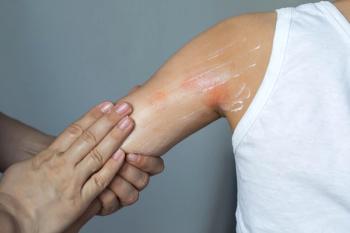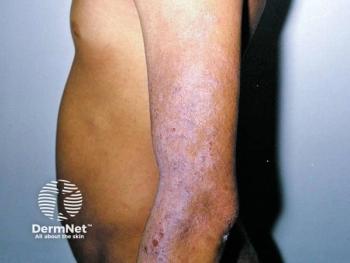
Study shows impact of skin disease on patient psyches
Rome - A group of Italian researchers has completed a study assessing the extent to which psychiatric disorders occur in patients with skin disease.
Rome - A group of Italian researchers has completed a study assessing the extent to which psychiatric disorders occur in patients with skin disease. The results: Significant numbers of patients with skin disease were judged to have some form of psychiatric problem.
In an article published in the September issue of Psychotherapy and Psychosomatics, a research group of six doctors, five from the Dermatological Institute IDI-IRCCS in Rome, reports that in a study of 545 dermatological in-patients aged 18 to 65 years and previously found to be "free from dementia and cognitive impairment," 38 percent received a DSM IV diagnosis (Diagnostic and Statistical Manual of Mental Disorders, Fourth Edition) and 48 percent received a DCPR diagnosis (Diagnostic Criteria for Psychosomatic Research).
The goal of the research, according to the study abstract, "was to provide a systematic psychosocial evaluation of a large and heterogeneous population of patients with skin diseases, including assessments of quality of life, psychiatric status according to the DSM-IV and psychological conditions with psychosomatic relevance according to established criteria."
As part of the study, the patients completed the Skindex-29 survey and the 12-item General Health Questionnaire (GHQ-12) and were administered the SCID-I and the Structured Interview for Psychological Conditions of Psychosomatic Relevance by a mental-health professional blinded to questionnaire scores.
Of the DSM IV diagnoses, the most common were mood and anxiety disorders (20 percent and 16 percent, respectively); of the DCPR diagnoses, the most common were demoralization, irritable mood, type A behavior and various forms of abnormal illness behavior.
The researchers conclude that their findings "highlight the high frequency of psychosocial problems in patients with skin disease and suggest that the joint use of DSM-IV and DCPR criteria may help identify those patients in whom psychiatric issues are worthy of increased clinical attention."
Newsletter
Like what you’re reading? Subscribe to Dermatology Times for weekly updates on therapies, innovations, and real-world practice tips.












